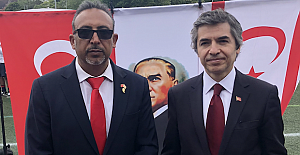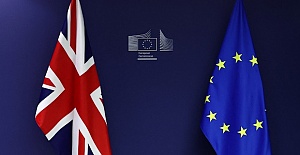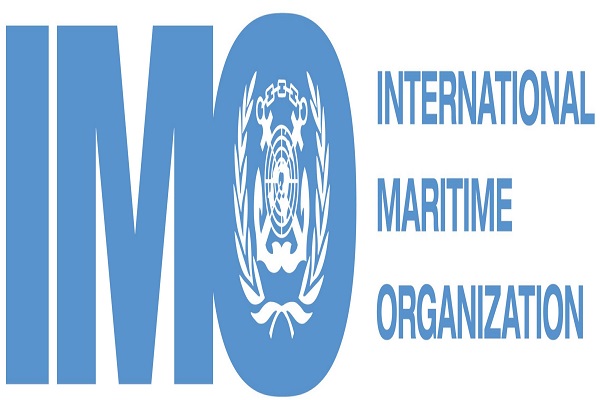IMO Secretary-General Koji Sekimizu has launched this year’s World Maritime Day theme, “IMO conventions: effective implementation”, expressing the hope that the year would see genuine progress towards effective and global implementation of all IMO conventions.
Speaking at a reception to mark the launch of the theme, at the end of the first day of the first session of the Sub-Committee on Ship Design and Construction (SDC), Mr. Sekimizu said the theme provided an opportunity to shine a spotlight on those IMO treaty instruments which have not yet entered into force, as well as wider and more effective implementation of measures already agreed or in place.
“The adoption of an IMO convention cannot be the end of a process. A conference is held, the text agreed, there are handshakes all round. But it’s not the end of the process. It should be just the end of the beginning. Because an IMO convention is only worthwhile and meaningful if it is effectively and universally implemented,” Mr. Sekimizu said.
Treaties still to enter into force include the International Convention for the Control and Management of Ships' Ballast Water and Sediments, 2004; the Hong Kong International Convention for the Safe and Environmentally Sound Recycling of Ships, 2009; the Nairobi International Convention on the Removal of Wrecks, 2007; the 2010 Protocol to the International Convention on Liability and Compensation for Damage in Connection with the Carriage of Hazardous and Noxious Substances by Sea (HNS); and the Cape Town Agreement of 2012 on the Implementation of the Provisions of the 1993 Protocol relating to the Torremolinos International Convention for the Safety of Fishing Vessels.
“The sooner these conventions enter into force, the sooner the benefits would be received by us and the international community. During the course of this year, under the banner of the World Maritime Day theme, we will do all we can to encourage the ratification and implementation of all these instruments,” Mr. Sekimizu said.
“As well as conventions yet to enter into force, the wider and more complete implementation of measures already in place will also be a major element of this year’s theme. Energy efficiency measures for ships, the availability of fuel oil to meet increasingly stringent sulphur content requirements, and the verification of goal-based ship construction standards are all important activities for which we wish to make significant progress in the Organization’s work this year and will all contribute towards wider and more effective implementation of measures already agreed or in place,” Mr. Sekimizu said.
Mr. Sekimizu noted that implementation of IMO measures was, ultimately, the responsibility of the Member States and the industry, while the forthcoming mandatory audit scheme for Member States would be an important tool for assessing Member States’ performance in meeting their obligations and responsibilities as flag, port and coastal States under the relevant IMO treaties. The Organization and the Secretariat also had a role to play, specifically through IMO’s extensive technical cooperation programme.


 Margaret Greer has been sworn in as the new Mayor of Enfield
Margaret Greer has been sworn in as the new Mayor of Enfield Prime Minister Keir Starmer's 2025 Easter message
Prime Minister Keir Starmer's 2025 Easter message After Nesil Caliskan a by-election will be held in Jubilee ward in Enfield
After Nesil Caliskan a by-election will be held in Jubilee ward in Enfield Publishing the analysis, Labour’s Cllr Ergin Erbil said Everybody in Enfield deserves basic rights
Publishing the analysis, Labour’s Cllr Ergin Erbil said Everybody in Enfield deserves basic rights Great respect for Ataturk and enthusiastic youth celebration in England
Great respect for Ataturk and enthusiastic youth celebration in England UK AMBASSADOR TO TURKEY VISITS FETHIYE
UK AMBASSADOR TO TURKEY VISITS FETHIYE Journalists from Europe held the Turkish Media Workshop in Skopje
Journalists from Europe held the Turkish Media Workshop in Skopje The European Union called on Turkey to uphold democratic values
The European Union called on Turkey to uphold democratic values Fenerbahce is the EuroLeague champion
Fenerbahce is the EuroLeague champion Brennan Johnson’s first-half strike seals London side’s win
Brennan Johnson’s first-half strike seals London side’s win The 'Prince of Paris' has impressed in his first EuroLeague season
The 'Prince of Paris' has impressed in his first EuroLeague season Saran Media And Euroleague Basketball Extend Media Rights Partnership for Four More Years
Saran Media And Euroleague Basketball Extend Media Rights Partnership for Four More Years UK, EU reach landmark agreement on food, fishing ahead of London summit
UK, EU reach landmark agreement on food, fishing ahead of London summit Perry Scott to become Enfield Council Chief Executive
Perry Scott to become Enfield Council Chief Executive Residents welcomed back to Edmonton Leisure Centre
Residents welcomed back to Edmonton Leisure Centre Barclays has become the biggest UK lender so far to cut mortgage rates
Barclays has become the biggest UK lender so far to cut mortgage rates















